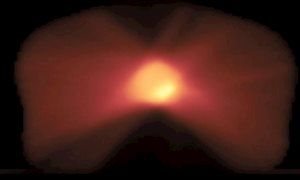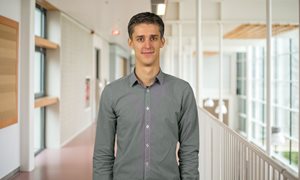
The Dutch Belgian NELSON trial has recently demonstrated that low-dose CT screening leads to a 24% reduction in lung cancer mortality amongst long-term smokers. However, if a cohort were invited for screening based on age and long-term smoking (like in NELSON), many individuals would not benefit. Furthermore, many screen-detected lung nodules lead to extra investigations while most nodules are benign. Better methods are needed for stricter selection of screenees who will benefit from screening, and for improved nodule stratification.
The Dutch Cancer Society has awarded the consortium project ‘Multi-source data approach for Personalized Outcome Prediction in lung cancer screening (NELSON-POP)’ with a grant of 1,425,000 Euro. In this consortium, the unique expertise and data from the various NELSON sites and associated research groups are combined to leverage various unexplored data sources, in order to identify the factors most predictive of lung cancer. Fundamental knowledge will be gained about the predictive power of data sources and biomarkers that can be derived for NELSON participants, namely genetic and environmental data, lung nodule risk data and chest CT biomarkers.
The consortium project is a public-private partnership and will be led by Rozemarijn Vliegenthart (University Medical Center Groningen) and brings the expertise of University Medical Center Groningen, Erasmus MC, UMC Utrecht, KU Leuven, Radboud UMC and MUMC+ together. This project is co-funded by Siemens Healthineers.
From Radboudumc, the department of Medical Imaging is involved in the consortium project. Colin Jacobs (Medical Imaging) will lead the work package on using artificial intelligence to accurately determine the cancer probability of lung nodules, and subsequently develop optimized nodule management protocols.
Related news items

Radiation boost lowers risk of prostate cancer recurrence
21 January 2021 An additional external-beam radiation dose delivered directly to the tumor can benefit the prospects of men with non-metastatic prostate cancer, without causing additional side effects. The risk of relapse within five years for these men is smaller than for men who did not receive this boost. go to page
Evaluation of an AI system for detection of COVID-19 on Chest X-Ray images
22 May 2020 In the journal Radiology researchers from Radboudumc, Bernhoven Hospital and Jeroen Bosch Hospital described how an artificial intelligence system (CAD4COVID-XRay) can identify characteristics of COVID-19 on chest x-rays with performance comparable to six independent radiologists. go to page
Is Google's lung cancer AI ready for implementation?
19 December 2019 In Nature Reviews Clinical Oncology, Colin Jacobs and Bram van Ginneken discussed the recent paper by Google AI in Nature Medicine on deep learning models for automatic detection of lung cancer from computed tomography. go to page
Awarded KWF grants for Radboudumc researchers
18 December 2019 KWF is investing 2.7 million euros in five different studies at Radboudumc. The awards are part of the new round of funding by DCS, in which over 34 million euros will be granted to Dutch cancer research. We congratulate our researchers with this funding and wish them success with their great work. go to page
Making pregnancy ultrasound available in developing countries
24 January 2019 Many pregnant women in developing countries do not receive an ultrasound examination. As a result, pregnancy risks often go unnoticed, which contributes to the high maternal mortality rates in these countries. go to page
